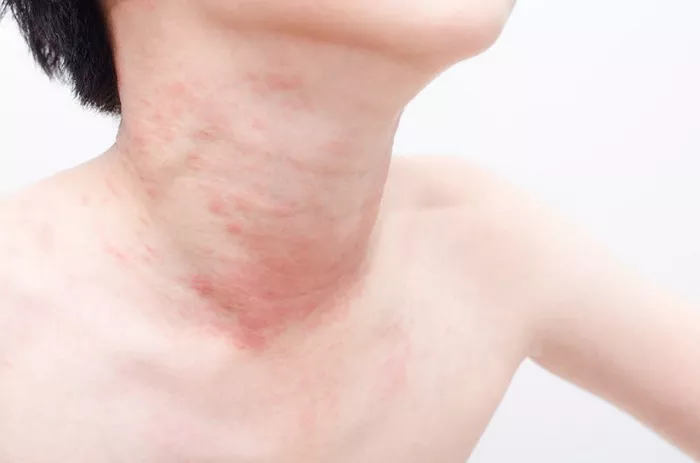Stress hives, also known as stress-induced urticaria, are a manifestation of the body’s response to emotional or psychological stress. These itchy, red welts can appear suddenly and cause discomfort, adding another layer of stress to an already overwhelming situation. While managing stress hives can be challenging, there are several strategies that individuals can employ to find relief and improve their quality of life.
Understanding Stress Hives: Causes and Symptoms
Before delving into management strategies, it’s essential to understand the underlying causes and symptoms of stress hives. When the body perceives stress, it releases chemicals like histamine, which can trigger an immune response and lead to the development of hives. Common symptoms of stress hives include:
- Itchy, raised welts on the skin
- Redness or discoloration of the affected area
- Swelling and inflammation
- Sensations of burning or stinging
These symptoms can vary in severity and may come and go depending on the individual’s stress levels and triggers.
Stress Management Techniques
Managing stress hives begins with addressing the underlying stressors contributing to their development. Implementing effective stress management techniques can help reduce the frequency and severity of outbreaks. Here are some strategies to consider:
1. Mindfulness Meditation
Practicing mindfulness meditation involves focusing on the present moment without judgment, which can help reduce stress and promote relaxation. Studies have shown that regular mindfulness meditation can lower levels of cortisol, the stress hormone, and improve overall well-being.
2. Deep Breathing Exercises
Deep breathing exercises, such as diaphragmatic breathing or the 4-7-8 technique, can activate the body’s relaxation response, counteracting the effects of stress. By taking slow, deep breaths, individuals can calm their nervous system and reduce the likelihood of experiencing stress hives.
3. Regular Exercise
Engaging in regular physical activity is an effective way to manage stress and improve overall health. Exercise releases endorphins, which are natural mood lifters, and can help reduce the frequency of stress-induced hives. Aim for at least 30 minutes of moderate exercise most days of the week.
4. Healthy Lifestyle Habits
Maintaining a healthy lifestyle can also support stress management and reduce the likelihood of hives outbreaks. This includes getting an adequate amount of sleep each night, eating a balanced diet rich in fruits, vegetables, and whole grains, and avoiding excessive alcohol and caffeine consumption.
SEE ALSO: What Causes Hives Out of Nowhere
Stress Reduction Techniques
In addition to lifestyle changes, there are specific techniques that individuals can use to reduce stress and prevent hives outbreaks:
1. Progressive Muscle Relaxation (PMR)
PMR involves tensing and then relaxing different muscle groups in the body, promoting physical and mental relaxation. By systematically releasing muscle tension, individuals can alleviate stress and minimize the risk of hives flare-ups.
2. Cognitive Behavioral Therapy (CBT)
CBT is a type of psychotherapy that focuses on changing negative thought patterns and behaviors associated with stress. By identifying and challenging irrational beliefs, individuals can develop healthier coping mechanisms and reduce the impact of stress on their physical health.
3. Stress-Reducing Activities
Engaging in enjoyable activities can provide a much-needed distraction from stress and promote feelings of happiness and relaxation. Whether it’s spending time with loved ones, pursuing a hobby, or practicing creative expression, finding activities that bring joy can help alleviate stress and prevent hives outbreaks.
Medical Treatment Options
While lifestyle changes and stress management techniques can be effective in managing stress hives for many individuals, some may require additional medical intervention. In cases of severe or persistent hives, healthcare professionals may recommend the following treatments:
Antihistamines: Over-the-counter or prescription antihistamines can help reduce itching and inflammation associated with stress hives.
Corticosteroids: In severe cases, corticosteroid medications may be prescribed to quickly reduce inflammation and alleviate symptoms.
Stress Counseling: Working with a therapist or counselor to address underlying stressors and develop coping strategies can be beneficial for managing stress-induced hives long-term.
Conclusion
Stress hives can be a frustrating and uncomfortable condition, but with the right approach, individuals can find relief and improve their quality of life. By implementing stress management techniques, reducing triggers, and seeking medical treatment when necessary, it’s possible to minimize the frequency and severity of hives outbreaks. Remember, finding what works best for you may require some trial and error, so be patient and persistent in your efforts to manage stress and prevent hives.
Related Topics:

























